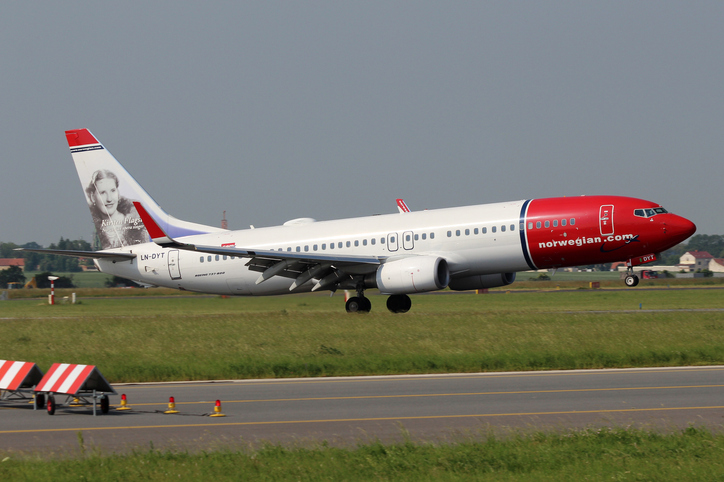Budget airline Norwegian Air is asking bondholders to extend the maturity of its debt by up to two years, pledging take-off and landing slots at London Gatwick Airport as security, it said in Monday.
The company is Europe’s third-largest budget carrier by passenger numbers after Ryanair and easyJet and has shaken up the market with cut-price transatlantic fares, but its rapid expansion has left it with hefty losses and high debt.
It was forced it to seek 3 billion crowns ($335 million) from shareholders this year.
Its bonds, which mature in December 2019 and August 2020 with a combined outstanding amount of $380 million, would be extended to November 2021 and February 2022 if bondholders accept the revised terms.
“Norwegian’s Gatwick portfolio currently consists of take-off and landing slots which has an independent valuation from a well-reputed third-party in excess of the current nominal bond value,” Norwegian said in a statement.
Negotiations are still ongoing to bring in an outside investor to take a stake in parts of its aircraft fleet, it added.
Norwegian’s share price initially fell by 5% before rebounding to trade up 5.4% on the day by 0722 GMT.
The indebted carrier’s operating performance has improved since mid-July but its working capital has decreased this year amid ongoing engine problems and the grounding of its fleet of Boeing 737 MAX aircraft, it said.
Norwegian expects earnings before interest, taxation, depreciation, amortisation and aircraft ownership costs (EBITDAR) of between 6 billion and 7 billion Norwegian crowns ($670 million-$782 million) in 2019 and higher earnings in 2020, the company said.
“This would be at all-time high levels, despite the well-known issues with Rolls-Royce engines on the company’s Dreamliners and the grounding of the Boeing 737 MAX fleet,” it said.
Such technical problems have negatively affected Norwegian’s working capital by some 1.5 billion crowns, Norwegian Air said.
Historically, the company has also relied on advance ticket payments by credit card, but tightened industry terms have made this more difficult.
It said working capital was down by approximately 4 billion crowns versus the second quarter of 2018 as a result.
Chief executive and co-founder Bjoern Kjos stepped down in July in a move some analysts said could make it easier to sell the airline after talks about a deal with British Airways parent IAG fell through in January.







